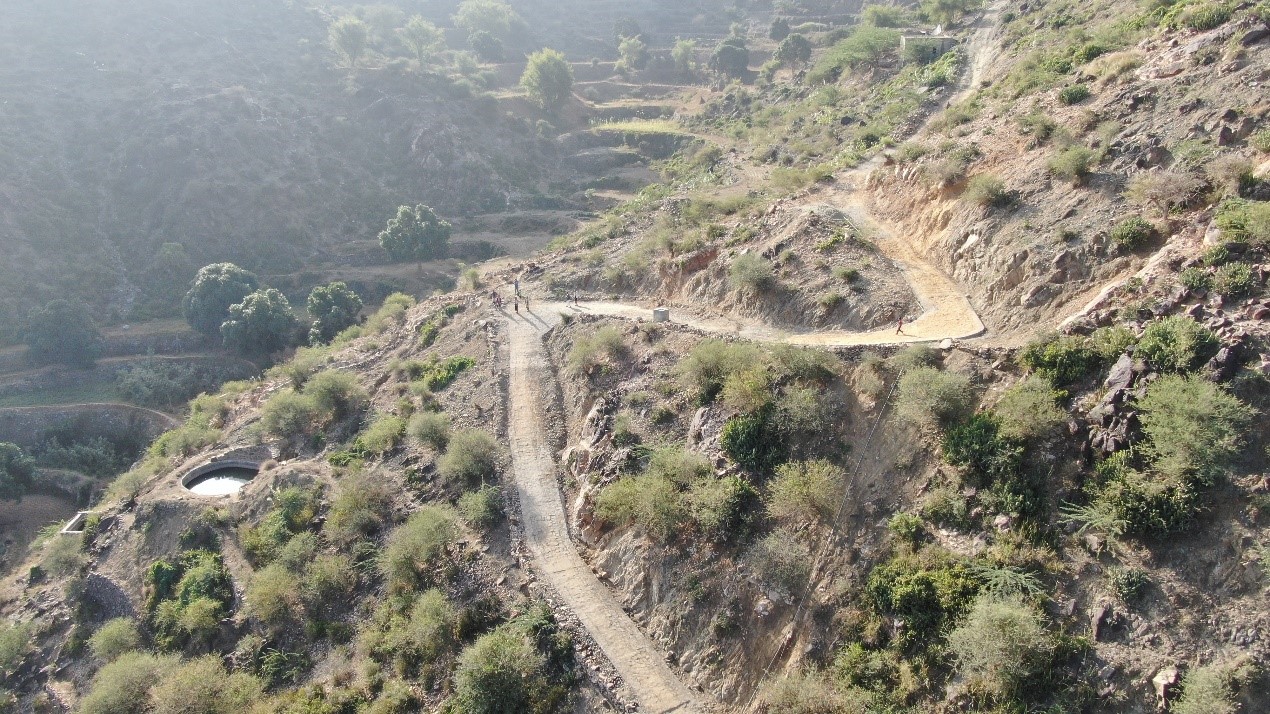Hajjah
"Cash for Work": A Humanitarian Mechanism for Rehabilitating the "Beit Al-Shaqah" Road
Adel Al-BaouaThursday, 01 January, 1970

Before the paving of the Bab Al-Shaqah road, residents used to carry their sick and needy on their shoulders or on donkeys.
In 2008, a four-wheel drive vehicle reached the village of Beit Al-Shaqah in the Keidna district of Hajjah governorate, but it was the last time a car reached the village. The mountainous road with its rugged terrain was cut off after it was washed away by floods, falling rocks and lack of maintenance, and the suffering of the villagers began.
Mohammed Shaqe recalls some of his suffering due to the road closure, saying: "When my mother got sick, the villagers carried her in a hodj on their shoulders from the bottom of the mountain until they reached the asphalt road. An ambulance was waiting for us to take her to the hospital, but unfortunately she died and we had to carry her back on the shoulders of the men again until we reached home."
Despite the proximity of the Beit Al-Shaqah road to the Keidna asphalt road, the mountainous nature of the area with its rugged terrain and lack of maintenance led to the aggravation of its problem until it was closed due to floods and erosion factors.
Abdullah Dahim, head of the community committee in Beit Al-Shaqah village, said: "15 years ago, the last car crossed this road. The residents endured the hardship of transporting their patients, food needs and livelihood requirements on their shoulders or on donkeys. This is an unbearable situation."
Funded by the Yemen Humanitarian Fund (YHF), the National Foundation for Development and Humanitarian Response (NFDHR) intervened to rehabilitate the Beit Al-Shaqah road through the Cash for Work mechanism, and 43 beneficiaries from the village participated in the repair and paving of the road.
The foundation provided the work requirements of stones, cement, safety tools and others. During three rounds of Cash for Work activities, 175 square meters were paved with stones in the most rugged and difficult areas of the road and retaining walls were built for them.
During the work period, the foundation worked to encourage community initiatives in Beit Al-Shaqah village, so that the residents would take over the work during the break period to pave other parts of the road.
In mid-December 2023, life returned to the village and cars reached the outskirts of the village again, which is the point where the paving process was still ongoing with a community initiative to complete the paving of the road.
Dahim confirms that a large part of the road problem has been solved, and the car has reached the outskirts of the village, but there is a lot of work for the residents to maintain the road, complete the rainwater drainage on the side of the road to protect it from erosion again and maintain it regularly.
